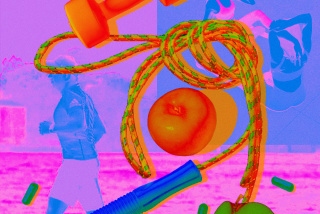Lashings of Rice
- Share via
The ancient scourge of famine, conquered by modern agriculture and international trade, is just a memory in most of the world, but the threat of mass starvation has left its mark on many cultures. The versatility of the Chinese kitchen is probably due to the famines that periodically swept China. The Chinese philosopher Lin Yutang once wrote that if something new were to appear in the world, the Americans would find a way to build on it and the Chinese would figure out how to cook it.
It’s simple immemorial poverty, as well as the fear of famine, that has made every traditional culture strongly opposed to wasting food. Throughout the Old World, if you drop any bread or rice on the floor, you’re usually supposed to pick it up and reverently place it on the table, even if you don’t then eat it.
In our wealthy country, we cajole children into joining a jolly Clean Plate Club, but other cultures use threats. Turkish children are warned that if they don’t finish their pilaf, on Judgment Day they will have to find all the rice they ever wasted and pick up every grain--with their eyelashes.
And people who live close to the edge of famine, such as the oasis dwellers of the Sahara Desert, often have a whole range of frugal food customs. When the Mzabi Berbers of Algeria finish a plate of couscous, they sprinkle a little water in the plate, wipe it up with a finger and then lick the finger. When a diner is finished, he’s supposed to say, “Refill this plate for me, oh God, with gold, because I have forced myself to be satisfied.”
The Mzabis also have a taboo against eating where you can’t be observed. If you eat couscous secretly, in the shadows, they say, an invisible demon will come and eat along with you, so you won’t be able to satisfy your appetite. (Actually, that might explain some things.)
More to Read
Eat your way across L.A.
Get our weekly Tasting Notes newsletter for reviews, news and more.
You may occasionally receive promotional content from the Los Angeles Times.










